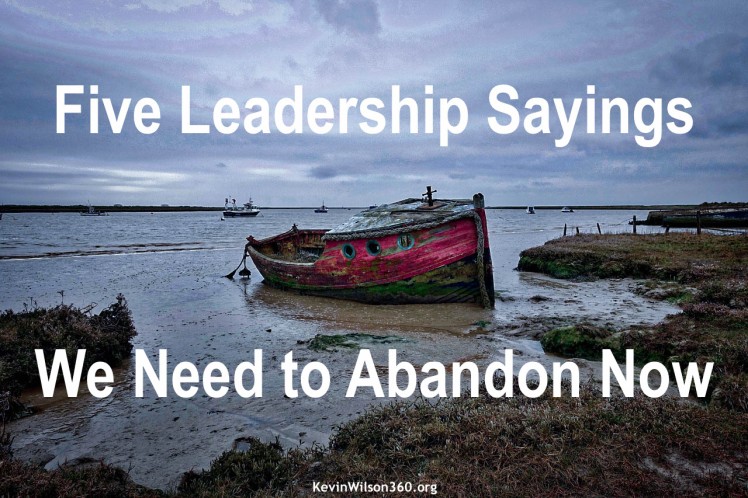
(This is the fifth in a series of five posts on trite sayings leaders should abandon. Here are links to the first, second, third and fourth posts).
There were a couple of years I thought this week’s trite saying had disappeared from use. But like Chia Pets and mullet hair styles, it just keeps coming back.
The saying?
“It’s better to burn out than to fade away.”
Penned by rock musician Neil Young in the 1970s, this saying should have gone out with bell bottom jeans. But Kurt Cobain, front man for the grunge group Nirvana, quoted the lyric in his suicide note in 1994. The saying was indelibly seared into the conscience of an entire generation.
It still echoes today. It’s time to close the echo chamber.
Given my primary audience is Christian leaders, it may seem odd I’m focused this particular phrase. Yet, I have heard the saying used in churches in the following contexts:
- Senior Pastors insisting on back-to-back building programs.
- Church planters rallying leaders when fledgling congregations lose momentum.
- Pastors justifying working month after month without taking a single day off.
It really doesn’t matter what is being justified. This saying is about personal glory and self-aggrandizement. It stands in stark contrast to God’s calling on the lives of Christians.
Consider the life of John the Baptizer, one of Jesus’ relatives. A striking figure, John developed a very successful ministry (Matthew chapter 3). Even as his popularity was growing, John said this about Jesus: “He must increase, but I must decrease.” (John 3:30)
Examine a leader named Barnabas, who was sent to work with a new church in the city of Antioch. Barnabas took a risk, recruiting an outsider named Saul to assist with discipleship (Acts 11:19-30). It was clear Saul had the potential to over shadow Barnabas as a leader, but this didn’t stop Barnabas.
In Acts chapter 13, we’re told God called Barnabas and Saul for mission work. On the mission trip, Saul starts going by the name “Paul” and assumes leadership of the work. This was only possible if Barnabas was willing to allow Saul to become the overall leader.
As I write this post, Philippians 2:3 keeps rattling around my brain: “Do nothing from selfish ambition or conceit, but in humility count others more significant than yourselves.”
One could argue there are biblical precedents for going out in a blaze of glory. What about martyrs such as the deacon Stephen or Jesus? The difference is these men did not give their lives for personal glory.
What about Christians who are pushing themselves past the limits of exhaustion in Texas and Florida, serving hurricane victims? It’s true, during the “relief stage” of a crisis, everyone serves sacrificially.
Keep in mind, this is the “relief stage.” Very soon the “recovery stage” will begin. Recovery takes years. In recovery, we change the pace of work, rotating teams in communities. We reduce the risk of burn out.
Why? Because for Christians, it’s better to fade away than to burn out. We don’t want to burn out our workers and volunteers. We want local resident rebuilding their lives to become the central focus. We want to contribute and quietly leave the community.
We would do well to treat this trite saying the same way. After decades of use it’s clear it won’t burn out on its own. We need to let it fade away.
Got a trite saying that’s driving you crazy? Share it in the comments or shoot me an email. Here’s links to the other four trite leadership sayings we need to abandon:
“Whatever Doesn’t Kill You…”
Practice Doesn’t Make Perfect
News Flash! Time Doesn’t Heal All Wounds!
It’s Better Not to Need to Ask

You missed one of my least favorite quotes, “Everything happens for a reason.” Thanks for the series.
LikeLike
I’ve started a file for “least favorite trite religious statements” for a future series. You’ve just added to the list. 🙂
LikeLike
Remember, you have to move slowly and take your time.
LikeLike